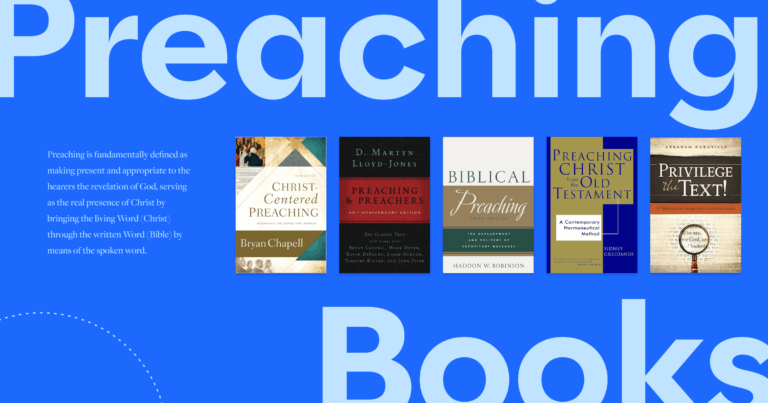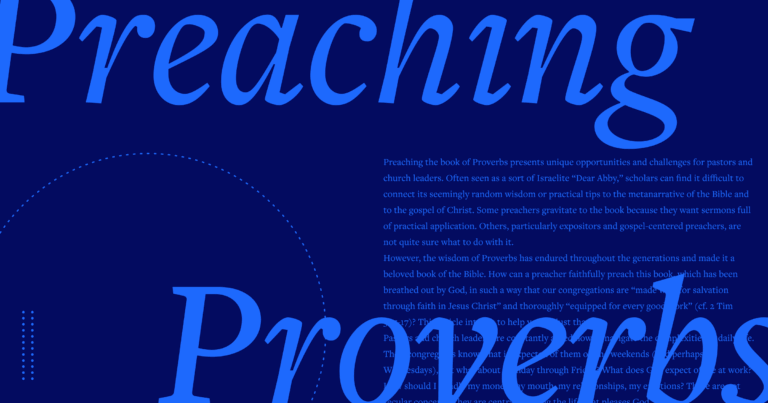This article is part of the Key Bible Verses series.
All commentary notes adapted from the ESV Study Bible.
1. John 17:17
Sanctify them in the truth; your word is truth. Read More
Sanctify them. The sanctification of Christians is a lifelong process. It involves both a relational component (separation from participating in and being influenced by evil) and a moral component (growth in holiness or moral purity in attitudes, thoughts, and actions). This occurs in the truth, that is, as Christians believe, think, and live according to “the truth” in relation to God, themselves, and the world. This truth comprises the entire Bible, for Jesus says, your word is truth. The Greek word is surprisingly not an adjective (meaning “your word is true”) but a noun (alētheia, “truth”). This implies that God’s Word does not simply conform to some other external standard of “truth,” but that it is truth itself; that is, it embodies truth and it therefore is the standard of truth against which everything else must be tested and compared.
2. John 14:6
Jesus said to him, “I am the way, and the truth, and the life. No one comes to the Father except through me.” Read More
Jesus as the one way to the Father fulfills the OT symbols and teachings that show the exclusiveness of God’s claim (see note on John 3:18), such as the curtain (Ex. 26:33) barring access to God’s presence from all except the Levitical high priest (Lev. 16), the rejection of human inventions as means to approach God (Lev. 10:2), and the choice of Aaron alone to represent Israel before God in his sanctuary (Num. 17:5). Jesus is the only “way” to God (Acts 4:12), and he alone can provide access to God. Jesus as the truth fulfills the teaching of the OT (John 1:17) and reveals the true God (John 1:14, 17; John 5:33; John 18:37; also John 8:40, 45–46; John 14:9). Jesus alone is the life who fulfills the OT promises of “life” given by God (John 11:25–26), having life in himself (John 1:4; John 5:26), and he is thus able to confer eternal life to all those who believe in him (e.g., John 3:16). This is another “I am” saying that makes a claim to deity (see note on John 6:35).
ESV Study Bible
The ESV Study Bible—created by a diverse team of 95 leading Bible scholars and teachers—features 20,000 study notes, 80,000 cross–references, 200+ charts, 50+ articles, 240 full–color maps and illustrations, and more.
3. Psalm 25:5
Lead me in your truth and teach me,
for you are the God of my salvation;
for you I wait all the day long. Read More
Desire for Guidance. Those who trust in the Lord seek his guidance, i.e., they want to learn what manner of life (ways, paths) pleases him and how his commands apply to their specific circumstances. God’s guidance in the Bible is almost always concerned with the moral virtues he wants in his faithful people (cf. Ps. 25:8–10, 12); in light of these virtues they make their choices in the various circumstances of life. I wait. Cf. Ps. 25:3.
4. Ephesians 4:15
Rather, speaking the truth in love, we are to grow up in every way into him who is the head, into Christ . . . Read More
The truth must not be used as a club to bludgeon people into acceptance and obedience but must always be presented in love. The truth leads the Christian to maturity, which is defined here as growing up into Christ. As head, Christ leads, directs, and guides the body (see Eph. 5:23; 1 Cor. 11:3).
5. John 16:13
When the Spirit of truth comes, he will guide you into all the truth, for he will not speak on his own authority, but whatever he hears he will speak, and he will declare to you the things that are to come. Read More
The Spirit’s ministry of guiding Jesus’ followers into all the truth is a promise especially directed toward these 11 disciples, and it finds particular fulfillment in the subsequent work of these disciples in personally writing or overseeing the writing of the books of the NT. The promise, like the other things that Jesus says in these chapters, also has a broader application to all believers as the Holy Spirit leads and guides them (see Rom. 8:14; Gal. 5:18). The activity of the Holy Spirit in declaring the things that are to come suggests that he knows the future, something that is true of God alone; this gives evidence of the full deity of the Holy Spirit. The word declare (Gk. anangellō) occurs over 40 times in the Septuagint translation of Isaiah, where declaring things to come is said to be the exclusive domain of God (Isa. 48:14) and where God challenges anyone to declare the things that are to come (Isa. 42:9; Isa. 44:7; Isa. 46:10; cf. Isa. 41:21–29, esp. Isa. 41:22–23; Isa. 45:19).
6. Psalm 119:160
The sum of your word is truth,
and every one of your righteous rules endures forever. Read More
To say that these commands are “true” (Ps. 119:160) is to confess that, with all their elements geared to a particular culture and phase of redemptive history, the principles that underlie them are founded on the very nature of things, and of God. This is why Christians can sing these words with the same yearning, trust, and dependence.
7. John 8:31–32
So Jesus said to the Jews who had believed him, “If you abide in my word, you are truly my disciples, and you will know the truth, and the truth will set you free.” Read More
Their “belief” is shown to be false in the course of the story (see John 8:33–47). To abide in Jesus’ word means to continue believing what Jesus has said and walking in obedience to him (see note on John 15:4; also John 6:56; 1 John 2:6, 28; 1 John 3:6). This verse shows that continuing to trust Jesus and obey him is one test of who are truly my disciples.
This verse is frequently quoted out of context, but the connection with v. 31 shows that Jesus is only talking about one way to know the truth, and that is by continuing to believe and obey his word. set you free. From the guilt and enslaving power of sinful patterns of conduct.
8. Ephesians 6:14–15
Stand therefore, having fastened on the belt of truth, and having put on the breastplate of righteousness, and, as shoes for your feet, having put on the readiness given by the gospel of peace. Read More
Standing Firm. Paul reiterates the charge to stand in the face of dreaded spiritual enemies because the Lord has not left his people defenseless. They have the complete armor of God from head to foot, which consists of the belt, breastplate, shoes, shield, helmet, and sword. These are metaphors for the spiritual resources given to them in Christ, namely, the truth, righteousness (Eph. 6:14), gospel (Eph. 6:15), faith (Eph. 6:16), salvation, and the Word of God (Eph. 6:17). As mentioned in the note on Ephesians 6:13, these are aspects of God’s and the Messiah’s own character and work (as depicted in Isaiah) with which Christians are now equipped. For example, the Lord saw no one to deliver his oppressed people, so he put on his own “breastplate [of righteousness]” and “helmet of salvation” (Isa. 59:17; cf. Eph. 6:14, 17) before coming in wrath against his enemies.
9. James 1:18
Of his own will he brought us forth by the word of truth, that we should be a kind of firstfruits of his creatures. Read More
Brought us forth by the word of truth speaks of spiritual salvation, with “us” meaning believers, the “word of truth” being the gospel, and “brought . . . forth” (that is, from the womb) being a metaphor for the new birth. The firstfruits of the harvest (cf. Ex. 23:16–19; Lev. 23:9–14) are pioneer believers, who are a prelude to further conversions yet to come (cf. Rom. 16:5; 1 Cor. 16:15).
10. 2 Thessalonians 2:13
But we ought always to give thanks to God for you, brothers beloved by the Lord, because God chose you as the firstfruits to be saved, through sanctification by the Spirit and belief in the truth. Read More
as the firstfruits. This indicates that the Thessalonians, as early Christians, are the firstfruits of the new humanity, or of Thessalonica. (On firstfruits offerings, see Ex. 23:19; 34:26.) However, as the ESV footnote indicates, some manuscripts read “from the beginning” (Gk. ap’ archēs) rather than “as firstfruits” (Gk. aparchēn). In that case, Paul’s point is that God’s choice was in eternity past. Either way, Christians were divinely elected to be saved, and this was to be the ultimate end of a journey marked by sanctification by the Spirit and belief in the truth, in contrast to the way of unbelievers, who are marked by unrighteousness and will believe the Antichrist’s lie (2 Thess. 2:10–12). Note the involvement of each person of the Trinity: the Father elects, the Son loves, and the Holy Spirit makes holy.
Popular Articles in This Series
View All
Crossway is a not-for-profit Christian ministry that exists solely for the purpose of proclaiming the gospel through publishing gospel-centered, Bible-centered content. Learn more or donate today at crossway.org/about.












 English (US) ·
English (US) ·